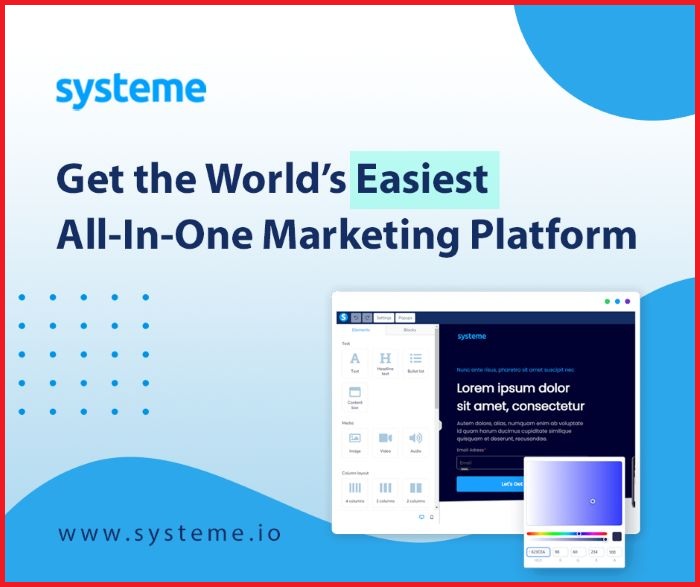Content marketing has become an indispensable tool in the digital age, allowing businesses of all sizes to engage with their audiences meaningfully. A content marketing consultant steps in to provide expertise, guiding companies to not only attract potential customers but also to retain them through compelling content that resonates. These consultants help illuminate the path by crafting a tailored content strategy aligned with the target demographic’s business goals and interests.

The role of a content marketing consultant is multifaceted, involving strategic planning, content creation, and optimizing digital content to perform well across various platforms. They also analyze and measure the performance of the content to ensure that it effectively contributes to the business’s bottom line. From boosting conversions by educating leads about products and services to leveraging analytics for performance measurement, a content marketing consultant’s value lies in their ability to turn content into tangible results. Choosing the right consultant could mean the difference between a content strategy that flourishes and one that falls flat.
Key Takeaways
- A content marketing consultant can strategically develop and align your content with business objectives.
- Expert consultation covers content creation, optimization, and performance analytics.
- Choosing a skilled consultant is crucial to converting content efforts into business growth.
Understanding Content Marketing
In the digital era, your ability to attract and engage audiences heavily depends on your content. It’s not just about filling your website with random posts; it’s about crafting a strategic approach to reach your business objectives through content.
Defining Content Marketing
Content marketing is a strategic approach focused on creating and distributing valuable, relevant, and consistent content to attract and retain a clearly defined audience — and, ultimately, to drive profitable customer action. Your content strategy should cater to the needs of your target audience, delivering high-quality content that is educational, entertaining, or inspiring, leading to a strong brand relationship.
Evolution of Content Industry Practices
The practice of content marketing has grown significantly over the years. Initially, it might have included simple blog posts or articles, but now it encompasses a multitude of formats — from videos and ebooks to podcasts and infographics. This growth reflects consumer behavior and technology changes, urging businesses to evolve their marketing efforts and strategies constantly.
Role of a Content Marketing Consultant
Engaging a content marketing consultant means bringing expertise to your table to enhance or develop an effective content marketing strategy. These consultants analyze your current marketing efforts, identify areas for growth, and help you create and distribute high-quality content tailored to your business goals. They’re instrumental in crafting a roadmap to content strategy success, ensuring that every piece aligns with your overall marketing and business objectives.
Building a Content Marketing Strategy
Crafting a content marketing strategy necessitates a thoughtful approach where you align your business goals with the needs of your target audience. Strategic planning, understanding your audience, and setting realistic objectives form the cornerstone of any successful campaign.
Developing a Robust Content Plan
Begin laying the foundation of your content marketing strategy with a solid plan. First, establish a content calendar that ensures a steady flow of content tailored to your audience’s interests and SEO goals. Use data to inform the types of content you create, aiming to build brand awareness and drive ROI. Remember to keep your content aligned with trending topics and keywords to optimize your content for search engines.
Setting Achievable Marketing Goals
Your marketing goals should be specific, measurable, attainable, relevant, and time-bound (SMART). Whether you’re looking to increase website traffic, generate new leads, or improve social media engagement, you need to quantify your marketing goals to track progress and make necessary adjustments to your campaigns.
Understanding Your Target Audience
Knowing who you’re talking to is pivotal. Craft customer personas to understand their challenges, needs, and online behaviors. This data-driven approach will guide your content creation, ensuring it resonates with the right people and leads to higher engagement rates. As you get to know your audience, you’ll develop your strategy for better-tailored content that drives brand loyalty.
By breaking down your strategy development to include these focused areas, you’re much more likely to see the results that make all your efforts worthwhile.
Content Creation and Optimization

Creating and optimizing content involves a strategic approach where quality and relevance are paramount. You aim to craft material that resonates with your audience, incorporates your brand voice, and follows SEO best practices to achieve visibility in search engine results.
Crafting High-Quality Blog Posts
Blog posts are the backbone of digital content strategy. When writing a blog post, focus on delivering value to your readers with clear, actionable information. Your blog should highlight keywords relevant to your audience’s search intent, ensuring each piece is SEO-friendly. To enhance readability, break down your text with subheadings and lists like this:
- Introduction: Set the context and grab attention.
- Primary Content: Address the core topics using short paragraphs.
- Conclusion: Sum up the insights and encourage engagement.
Developing Engaging Infographics and Visual Content
Infographics and other visual content types are powerful tools to simplify complex information. Invest in quality graphic design to convey your message effectively as part of your content creation. Use design elements that align with your website design and amplify your brand’s aesthetic. Remember, engaging infographics often results in higher shareability, giving you more mileage for your efforts.
- Choose the Right Data: Make it compelling and relevant.
- Keep It Simple: Aim for clarity over decorative complexity.
- Call to Action: Encourage further interaction with your content.
Writing and Designing Comprehensive White Papers
White papers are substantial and informative; they’re ebooks providing deep insights into subjects. They should articulate issues and solutions that your business or product addresses. Your content here needs to strike a balance: be detailed yet accessible, authoritative yet understandable. Use a professional tone, data visualizations, and case studies to reinforce your points.
- Introduction: Clearly define the problem.
- Body: Present research and insights.
- Conclusion: Offer actionable recommendations.
In all these formats, whether it’s SEO content for blog posts, visual content like infographics, or informative white papers, your language and design should amplify your brand voice and assist in achieving your content marketing goals.
Content Marketing Tactics
Content marketing tactics are vital in strengthening your brand’s online presence. They help you engage with your audience, boost your visibility, and build trust with potential customers.
Effectively Utilizing Social Media
Leverage your social media platforms to create a community around your brand. Start by identifying which platforms your target audience frequents most and post relevant, engaging content. Use keyword research to tailor your posts for better reach and engagement. Social media is a powerful tool to foster trust and connect with your audience personally.
Leveraging Email Marketing Campaigns
Your email marketing campaigns should deliver valuable content directly to your subscribers. Craft personalized emails that resonate with your readers and include clear calls to action. By segmenting your audience and A/B testing your campaigns, you can increase the relevancy of the content and the effectiveness of your campaigns.
Incorporating SEO and SEM Techniques
To ensure your content reaches the widest possible audience, integrate SEO (Search Engine Optimization) and SEM (Search Engine Marketing) techniques into your strategy. High-quality content and intelligent keyword research can significantly improve your search engine rankings. Use SEO to optimize your content for organic reach and SEM to complement it through targeted ads and sponsored content.
Analytics and Performance Measurement
You’ll want to leverage sophisticated marketing tools and comprehensive data to enhance your content marketing efforts. Here’s how you can dissect your performance and amplify your returns.
Utilizing Marketing Tools and Data
By incorporating marketing tools into your strategy, you’ll gain access to valuable data that can inform your decisions. For instance, using Google Analytics, you can track user behavior on your site, which can help uncover pain points and opportunities. Tools like these can shed light on which aspects of your content resonate with your audience and how your search rankings improve over time.
- Choose the Right Tools: Start with robust analytics platforms like Google Analytics or specialized content marketing software that offers detailed insights.
- Analyze Your Data: Regularly check user engagement metrics, bounce rates, and conversion paths to understand user interactions.
Tracking Metrics and ROI
Your ability to track critical metrics directly influences your understanding of the Return on Investment (ROI) for your content marketing. The aim is to identify which pieces of content work towards achieving your business goals.
- Establish Clear Metrics: Focus on the metrics that align with your objectives, such as lead generation, sales, or brand awareness. Metrics can include conversion rates, click-through rates, and social shares.
- Evaluate Performance: Compare your content’s performance against your goals, paying particular attention to data that reflects customer acquisition costs and lifetime value. This comparison will help you fine-tune your strategy for improved results.
The Business Impact of Content Marketing
Content marketing significantly shapes your business’s growth by enhancing lead generation, website traffic, and sales performance. It’s your strategic tool for creating valuable connections with your audience.
Generating Leads and Conversions
By consistently providing high-quality content, you’re attracting eyes to your page and initiating a relationship. This effort transforms casual browsers into qualified leads. Content that addresses specific pain points or answers crucial questions can lead to a direct increase in conversions.
Improving Organic Traffic and Engagement
Content marketing bolsters your organic traffic—a bellwether for your brand’s online relevance. The right content can engage your audience longer, reducing bounce rates and signaling the search engines that your content is valuable, which may enhance your search rankings over time.
Sales Enablement and ROI
It is a pivotal sales enablement tool when your content clearly explains product benefits and addresses customers’ questions. This supportive content aims to expedite the buying process, leading to a measurable improvement in your ROI.
Choosing the Right Content Marketing Consultant
When you’re ready to take your content strategy to new heights, selecting the right content marketing consultant is crucial. They should have a tangible track record of success and the expertise to drive your brand forward.
Determining Consultant Expertise and Experience
Experience matters. To ensure you’re hiring a seasoned marketing expert, look for a content marketing consultant with a rich blend of industry-specific knowledge and proven methodologies. Confirm that they have:
- Broad experience across various content types and platforms.
- Specialization in areas pertinent to your business goals.
- The ability to articulate complex concepts and translate them into actionable strategies.
Consider their experience by reviewing their professional background and past projects, which should align with your business needs and objectives.
Evaluating Case Studies and Track Record
Detailed case studies and a strong track record indicate a consultant’s capabilities. These elements highlight not just success stories but also the consultant’s approach to problem-solving:
- Case Studies: Look for documented evidence of the consultant’s input transforming a brand’s content strategy. Case studies should demonstrate a clear before-and-after — showcasing the consultant’s impact on their client’s success.
- Track Record: Seek client testimonials that speak to the consultant’s reliability, strategic thinking, and results-driven mindset. These can offer insights into how the consultant has tackled challenges similar to yours.
By carefully vetting their expertise and track record, you position yourself to find a consultant who can offer not just consultation but transformation for your content marketing efforts.
Collaboration and Workflow
Your collaboration with marketing teams and establishment of effective workflows are pivotal in content marketing. Streamlined communication and project management ensure that your content aligns with strategic goals and is executed efficiently.
Working with Marketing Teams and Agencies
When you engage with a marketing team or a content marketing agency, remember that clear communication is the bedrock of success. Establishing a collaborative environment is vital. You’ll want to:
- Define roles and responsibilities early to avoid confusion.
- Use collaboration tools that allow for real-time updates and feedback.
For instance, if you’re working with a content marketing agency, the efficiency of your joint efforts depends on a shared understanding of the campaign goals and timelines.
Project Management and Strategic Guidance
The role of project management in content marketing cannot be overstated. A consultant provides strategic guidance to ensure that every piece of content serves a specific purpose within the larger marketing strategy. Your tasks include:
- Set measurable goals and track progress.
- Identify potential bottlenecks and address them promptly.
A Content Workflow Management system helps keep the marketing teams on track, allowing for a unified approach to achieving business objectives.
Industry Insights and Advanced Practices
In the dynamic world of content marketing, being privy to industry insights and advanced practices is crucial. You’ll be equipped to steer your campaigns toward success and make the most of emerging technologies.
Keeping Up with Digital Marketing Trends
Digital marketing is an ever-evolving field, and keeping up with trends is essential for staying ahead. For example:
- Content Formats: Video and interactive content are capturing more engagement. Considering how these formats can be integrated into your inbound marketing strategy would be best.
- Personalization: Users expect content tailored to their interests and behaviors. Machine learning can analyze data to personalize content at scale.
| Trend | Impact on Content Marketing | Action Items |
|---|---|---|
| Voice Search | More conversational content | Optimize for natural language queries |
| Ephemeral Content | Increased urgency and FOMO | Utilize short-term campaigns for quick engagement |
Navigating AI and Advanced Analytics
Artificial Intelligence (AI) and advanced analytics revolutionize how you understand and interact with your audience. For instance:
- Predictive Analysis: AI algorithms can predict trends and consumer behavior, offering a roadmap for future campaigns.
- Chatbots: They are becoming more intelligent and can handle complex customer service scenarios, improving engagement and freeing up your time for other tasks.
Industry best practices suggest using a robust test-and-learn approach, harnessing AI to iterate and improve your marketing efforts continually.
Remember, the crux of mastering content marketing lies in adapting and adopting advanced practices that align with your unique business goals.
Content Marketing for Different Business Types
Regarding content marketing, your business type influences how you should approach your strategy. Understanding your target audience is crucial whether you deal directly with other businesses or serve a niche market.
Content Strategy for B2B
For B2B (Business-to-Business) companies, content development isn’t just about generating leads and fostering lasting partnerships. It would be best if you focused on creating content that informs and educates your target market about the benefits of your product or service. Think whitepapers, industry research, and in-depth blog posts that showcase your expertise and thought leadership. It’s often beneficial to:
- Develop case studies demonstrating how your product or service has solved problems for other businesses.
- Provide downloadable resources, like eBooks or guides, that help other businesses understand complex industry issues or trends.
By presenting yourself as a knowledgeable leader in your field, you build credibility and trust with prospective B2B clients.
Bespoke Approaches for Niche Markets
For businesses serving niche markets, content marketing becomes highly specialized. Your content should focus on your target audience’s specific problems and needs. Here’s how you can make your content resonate with a niche market:
- Tailor your message to the unique concerns and interests of your market. Personalization goes a long way.
- Use storytelling to connect on a more personal level and create content your audience will find engaging and relatable.
Remember, whether you are developing a content strategy for B2B clients or addressing a niche market, the key is to offer value through your content. Providing solutions to your audience’s specific needs will set your content, and ultimately your business, apart.
Frequently Asked Questions
Navigating the realm of content marketing can be complex, but understanding the role of a content marketing consultant is critical to leveraging their expertise for your business’s success.
What are the primary responsibilities of a content marketing consultant?
A content marketing consultant is tasked with crafting a strategic vision for your content, aligning it with your business goals, and engaging your target audience effectively. They typically conduct market research, develop content strategies, and ensure that all content efforts contribute to your brand’s success.
How can one start a career as a content marketing consultant?
To begin a content marketing consultant career, you should build a strong foundation in marketing principles, gain hands-on experience through various content creation roles, and develop a portfolio demonstrating your strategic and tactical expertise in content campaigns.
What are some effective strategies for finding content marketing consultant jobs?
Practical strategies for finding content marketing consultant jobs include networking at industry events, maintaining an updated LinkedIn profile highlighting your experience, engaging with content marketing communities, and collaborating with agencies specializing in marketing placements.
Are there specific qualifications or skills that a content marketing coach should possess?
A content marketing coach should possess a deep understanding of content marketing strategies, SEO, analytics and the ability to tailor content for various digital platforms. Excellent communication and teaching skills are also crucial to guide clients towards achieving their marketing objectives.
What’s the average salary range for a content marketing consultant?
The average salary range for a content marketing consultant can vary widely depending on experience, location, and whether they’re freelance or employed by an agency. However, it generally falls between $50,000 to $100,000 annually, with variability based on the mentioned factors.
How do freelance content consultants differ from content marketing consultants in an agency?
Freelance content consultants usually offer more flexibility and may specialize in niche aspects of content marketing. In contrast, consultants in an agency often have access to broader resources, can collaborate with cross-functional teams, and might serve a more diverse client base.





